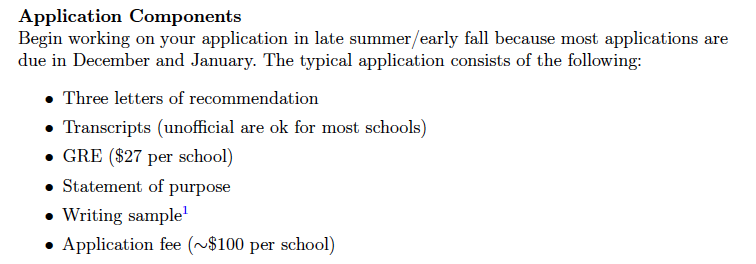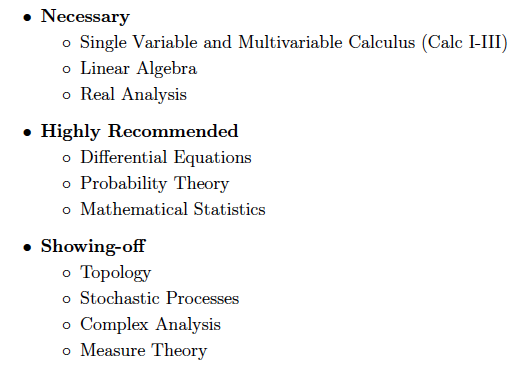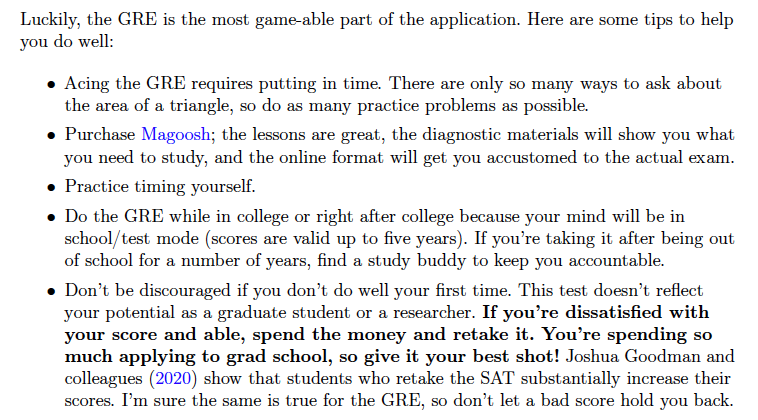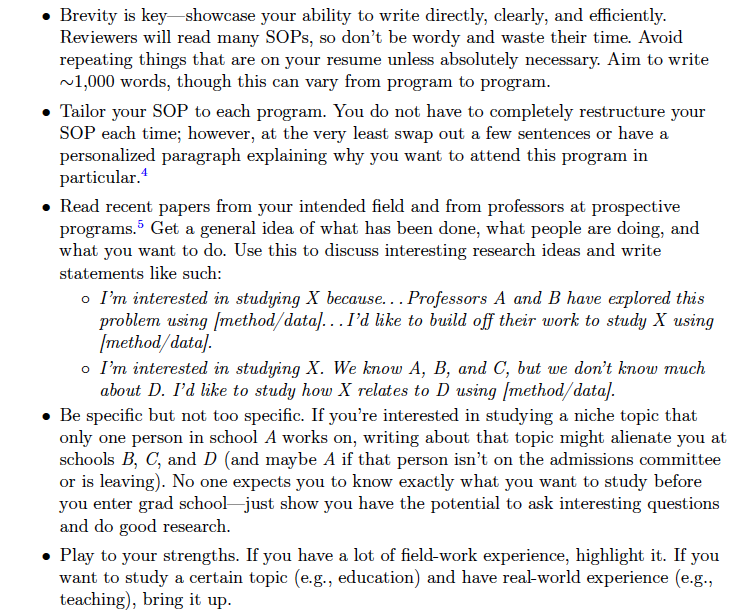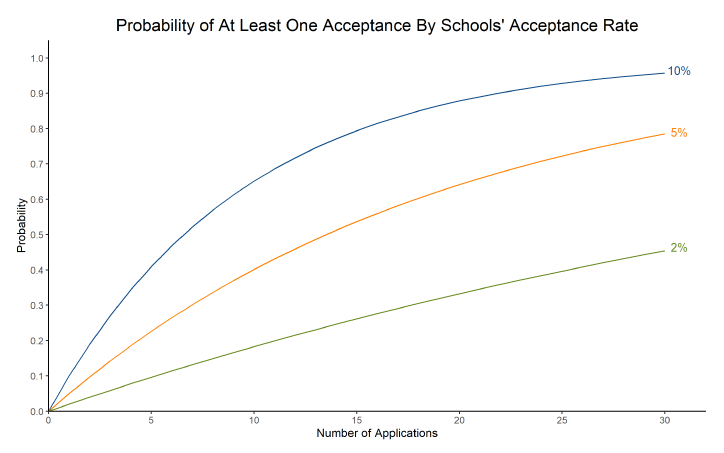1/N
I wrote a memo on the econ PhD application process based on my experience last year. I think prospective applicants - especially those outside of top schools - will find it useful. I only saw this from the supply side, so feel free to correct me! https://drive.google.com/file/d/1QozD6_4_bvMd2o-q-yh9Doc5aQ6i3nPV/view?usp=sharing">https://drive.google.com/file/d/1Q...
I wrote a memo on the econ PhD application process based on my experience last year. I think prospective applicants - especially those outside of top schools - will find it useful. I only saw this from the supply side, so feel free to correct me! https://drive.google.com/file/d/1QozD6_4_bvMd2o-q-yh9Doc5aQ6i3nPV/view?usp=sharing">https://drive.google.com/file/d/1Q...
2/N
Here& #39;s what the typical application consists of. Applications are expensive, so save up some money and increase your credit limit - I spent over $2.5k!
This process requires a lot of organization, so I provide a spreadsheet to help
https://drive.google.com/file/d/1RXUbPCo115wYvfBTZyM-UBrAJV7-eNw2/view?usp=sharing">https://drive.google.com/file/d/1R...
Here& #39;s what the typical application consists of. Applications are expensive, so save up some money and increase your credit limit - I spent over $2.5k!
This process requires a lot of organization, so I provide a spreadsheet to help
https://drive.google.com/file/d/1RXUbPCo115wYvfBTZyM-UBrAJV7-eNw2/view?usp=sharing">https://drive.google.com/file/d/1R...
3/N
You should have at least 1-2 years of research experience when applying. If you’re an undergrad, RA for profs or do a thesis. If you’re out of school, do a Pre-Doc. I’ve written a lot on finding and succeeding at such positions. https://www.alvinchristian.com/resources ">https://www.alvinchristian.com/resources...
You should have at least 1-2 years of research experience when applying. If you’re an undergrad, RA for profs or do a thesis. If you’re out of school, do a Pre-Doc. I’ve written a lot on finding and succeeding at such positions. https://www.alvinchristian.com/resources ">https://www.alvinchristian.com/resources...
4/N
Your rec letters are probs the most important part of your application, but also the one you have the least control over. Economics is a highly hierarchical and clubby discipline, so getting letters from professors the admissions committee will know and respect is important
Your rec letters are probs the most important part of your application, but also the one you have the least control over. Economics is a highly hierarchical and clubby discipline, so getting letters from professors the admissions committee will know and respect is important
5/N
Reach out to letter writers in early fall and give them a list of your programs, a tentative timeline, a CV, and a draft of your SOP. Suggest things you think they should highlight in their letters – this will make their job easier.
Reach out to letter writers in early fall and give them a list of your programs, a tentative timeline, a CV, and a draft of your SOP. Suggest things you think they should highlight in their letters – this will make their job easier.
6/N
Here are some of the math courses you need to be competitive for grad programs (am I missing anything?) You need good grades (≥ A-), especially for Real Analysis. Also consider taking grad econ courses (e.g., 1st year grad micro) to bolster your application.
Here are some of the math courses you need to be competitive for grad programs (am I missing anything?) You need good grades (≥ A-), especially for Real Analysis. Also consider taking grad econ courses (e.g., 1st year grad micro) to bolster your application.
7/N
You need a near-perfect quant GRE score to get into a top school. Some programs use the GRE as a filter (i.e., you need a score above a cutoff to have your application looked at, but beyond that it won’t help or hurt). Aim to score above the 90th percentile (≥ 167).
You need a near-perfect quant GRE score to get into a top school. Some programs use the GRE as a filter (i.e., you need a score above a cutoff to have your application looked at, but beyond that it won’t help or hurt). Aim to score above the 90th percentile (≥ 167).
8/N
The statement of purpose tells the admissions committee why you—beyond what’s listed in your CV—want to go to grad school, what you’re interested in studying, and why you will succeed in grad school and become a successful academic researcher. I provide a lot of tips here.
The statement of purpose tells the admissions committee why you—beyond what’s listed in your CV—want to go to grad school, what you’re interested in studying, and why you will succeed in grad school and become a successful academic researcher. I provide a lot of tips here.
9/N
Programs are competitive! @causalinf provides app optimization advice: find the lowest ranked school you’d attend, and apply to as many schools above it as you can, keeping in mind the probability of acceptance falls as you move up school ranking. https://twitter.com/causalinf/status/1250818101844881410">https://twitter.com/causalinf...
Programs are competitive! @causalinf provides app optimization advice: find the lowest ranked school you’d attend, and apply to as many schools above it as you can, keeping in mind the probability of acceptance falls as you move up school ranking. https://twitter.com/causalinf/status/1250818101844881410">https://twitter.com/causalinf...
10/N
Here’s an illustration assuming a constant acceptance rate across schools and iid errors. Using a 5% acceptance rate: there’s a 23% chance of ≥ 1 acceptance if you apply to 5 schools, but a 64% chance if you apply to 20 schools. Apply broadly – you just need one!
Here’s an illustration assuming a constant acceptance rate across schools and iid errors. Using a 5% acceptance rate: there’s a 23% chance of ≥ 1 acceptance if you apply to 5 schools, but a 64% chance if you apply to 20 schools. Apply broadly – you just need one!
12/N
I hope prospective grad students find this information useful.
When it comes down to it, getting into a top program boils down to just four things: 1) research experience, 2) strong letters, 3) excellence in math/GRE, and 4) a compelling SOP.
Good luck!
I hope prospective grad students find this information useful.
When it comes down to it, getting into a top program boils down to just four things: 1) research experience, 2) strong letters, 3) excellence in math/GRE, and 4) a compelling SOP.
Good luck!
N/N
Feel free to comment if I am missing or mischaracterizing anything!
Feel free to comment if I am missing or mischaracterizing anything!

 Read on Twitter
Read on Twitter